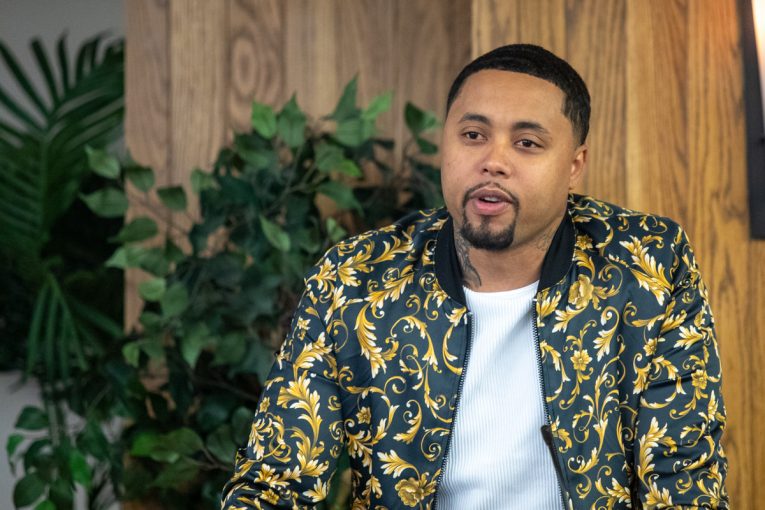

By Danielle Silva
SAN FRANCISCO – Jamal Trulove, a wrongfully convicted man, opened for the UC Hastings Symposium “Progressive Prosecutors and the Carceral State,” advising attorneys and the community to consider the background of those impacted.
In 2008, Trulove was arrested and later convicted of the murder of his friend Seu Kuka – a crime he did not commit. He received 50 years to life, serving 6 years in a maximum-security prison before the conviction was overturned in 2014 for prosecutorial misconduct. In 2015, he was retried and acquitted. Trulove later won a 2018 lawsuit for his wrongful conviction, where a federal jury found that the SF police officers fabricated evidence against him.
In his speech, Trulove noted that he never thought he would be speaking at an event with individuals interested in progressive prosecution and changing laws on how the prosecution is done. He directed the assembly to consider the communities that are prosecuted.
“People who go to jail are often part of a community out here in San Francisco,” Trulove said.
Trulove said to consider the realities and viewpoints of individuals from communities that are prosecuted.
“By the age of twelve, once I finally got the mindset of who I believe I was and I could make myself to the store without my parents, I grew up with the understanding I had to sell drugs to survive. I grew up believing I had to hold a gun in order to survive and that was my reality,” Trulove said.
He noted that this mindset was difficult to leave behind without someone guiding him. While he tried to stay out of situations similar to that his whole life, he understood that choosing to  outright abandon that history could lead someone to feel lost.
outright abandon that history could lead someone to feel lost.
“I identify with a lot of people that are out in the community right now, even still doing the same thing that I once did, and I sympathize for them because I was able to find myself on the other side of with a lot of hope leading forward,” Trulove said.
This mindset played a large role in his case. According to Trulove, he knew the individual who committed the murder, but did not say who it was.
“So a lot of people say, ‘Hey, why don’t you just say who did it?’ It’s easy for someone on the other side of the fence to say who did it because you guys aren’t being held to the same exact rules that you grew up on and followed by, that your whole family and your friends and your history says that it’s wrong,” Trulove said.
“If you were in that position, you’re like, ‘I’m not going to be that guy.’ Understandable – it’s not your job to say who did it and that’s the approach I had to take.”
He noted if he did say who did it, there could be consequences outside of the criminal justice system, such as himself or his family potentially being killed.
“And that’s what we’re faced with all the time growing up in our communities, even if we know who did it – and I sat in prison with a lot of people who just didn’t do it but they’re sitting in jail because they don’t want to tell on the person who did it because if they do, their whole history is wiped away,” Trulove said.
Trulove also pointed out if individuals did speak up, they would be required to back up their point, including appearing in court and making a statement. He shared he chose not to put himself in that situation.
If defendants said they didn’t do it, Trulove argued, “they could have been there, could have been around it, it might cost them their life.”
The topic shifted to the duties of attorneys.
Trulove noted he never thought he would have voted for a DA but he appreciated what Chesa understands. He notes how, in his community, the district attorneys have always been seen as an enemy and have a bad name.
If individuals are interested in going into prosecution or are a prosecutor, they should be going out to the communities they are prosecuting because they have to understand where individuals are coming from, especially considering the racial disparity already existent in the criminal justice system. Trulove asked prosecutors to “have remorse,” especially for individuals who may not know better.
“I was someone that didn’t know better,” Trulove said.
For defense attorneys, Trulove argued they need to understand someone’s life is in the balance. If court dates are continually being pushed back and the defendant barely sees their attorney, the defendant may put on a brave face, but all too often are dissatisfied with the process and their representations.
For both sides, Trulove reminds all criminal justice attorneys not to take every case. Prosecutors don’t need to take more cases to boost their numbers. Defense attorneys should only take as many cases as they can handle, and handle well.
Trulove ended talking about Chesa and why he ended up voting for him
“He really understood that it has gang enhancement (which) is targeted straight for our communities, to bring down our communities where we can’t hang around people that we know because we’re considered a gang. Understanding three-strike laws, prosecuting juveniles as adults – you don’t see young white kids having to go through those kinds of struggles,” Trulove said.
“Let’s just do better, San Francisco,” Trulove concluded.
